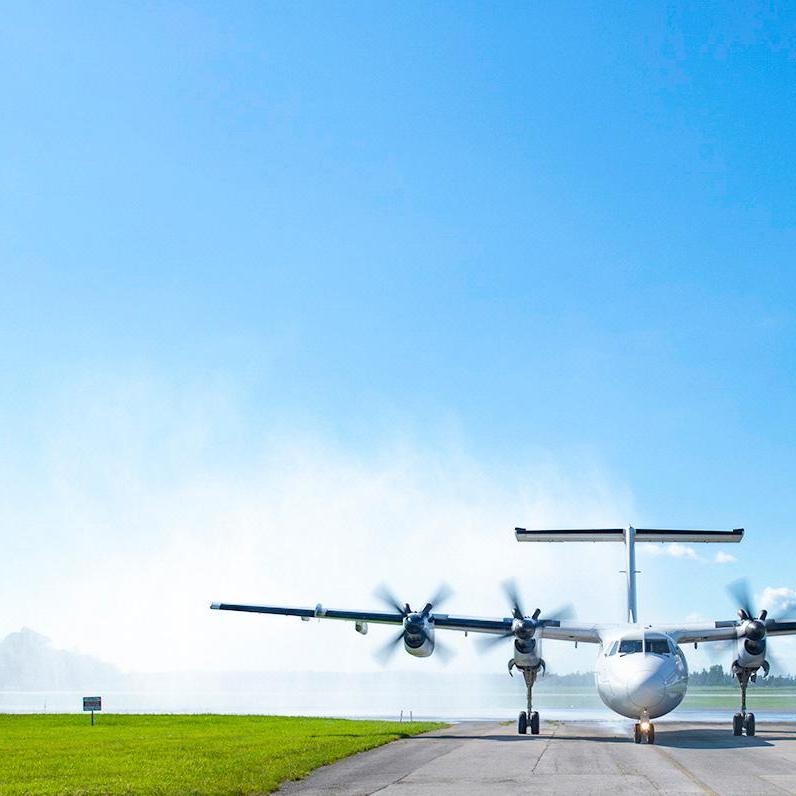
1 minute read
Airborne
The Norton Wolf School of Aviation Technology reaches for the skies.
Tucked off the runway at the London International Airport sits the home of Fanshawe’s Norton Wolf School of Aviation Technology. The 80,000 square foot building offers students a unique experience.
“It’s seldom you will find an aviation school in Canada sitting on the tarmac of a functioning international airport,” says Larry Weir, associate dean of the school. “It’s an extraordinary feeling, being steps from the busy runway and walking into a student learning environment with a hangar full of aircraft.”
Prior to the COVID-19 pandemic, the aerospace industry predicted significant growth over the next 20 years, requiring more than 200,000 pilots in North America alone. And with the potential of more planes flying, the need to service them would also increase. To help meet the demand, the Norton Wolf School of Aviation Technology will be expanding its offerings with four new programs over the next two years.
Two highly anticipated programs are Aircraft Structural Repair Technician and Commercial Flight and Aviation Leadership. Both programs will train students in the latest technology to ensure they are industry ready upon graduation.

The Commercial Flight and Aviation Leadership program will offer a professional pilot program in partnership with Diamond Flight Centre London Inc. “This is more than a flight program—aviation leadership is an important part of the industry,” says Larry. “Our students will study aviation history, advanced avionics, geography, project management, critical thinking, corporate social responsibility and ethics.”
In partnering with Diamond, students can expect a significant amount of pilot training in cutting-edge aircraft. “We’re focused on getting our students airborne as soon as possible,” Larry says. “During the first week, students will be up in the air and flying.”
Larry believes Fanshawe students and graduates will be perfectly primed to join the workforce.
“Having a school that will graduate 80 pilots a year, along with aircraft maintenance engineers and the additional stream of manufacturing-focused individuals, will have a huge impact on all aspects of the aerospace industry,” Larry says. “Our ability to work with national and international companies is contingent on providing an industry ready workforce—and the Norton Wolf School will do just that.”










